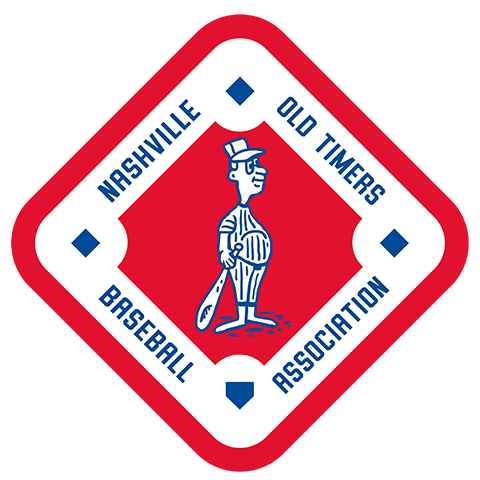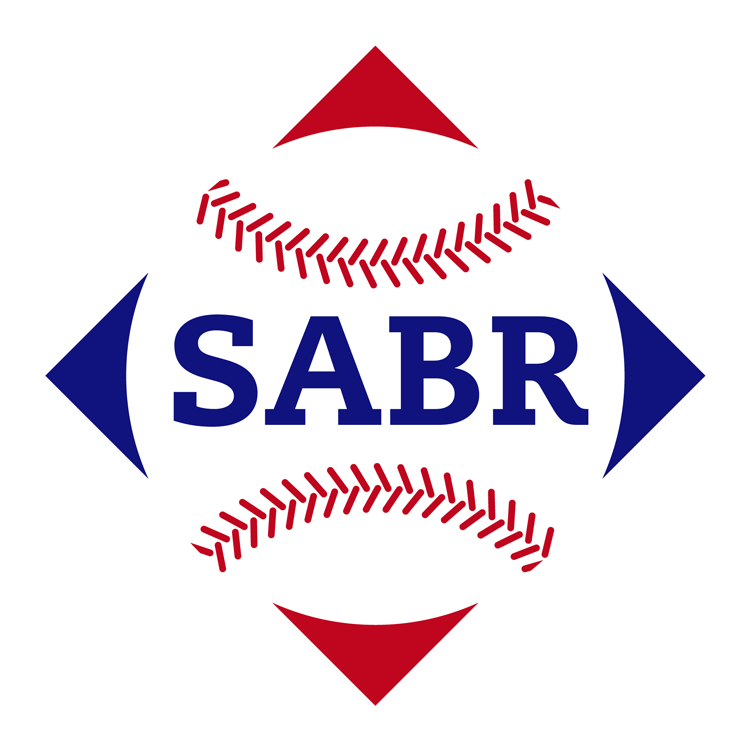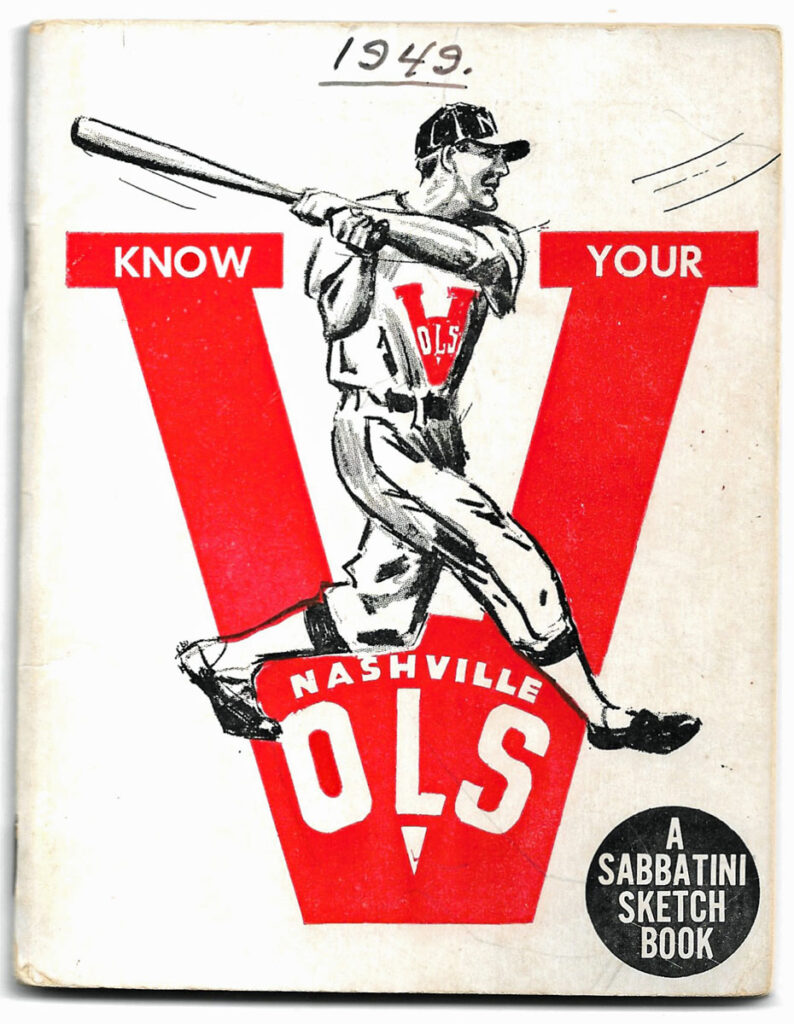
John Sabbatini was a newspaper artist for a local Memphis newspaper at the time he produced sketchbooks on two Southern Association teams, Memphis and Nashville, in a limited number. Each one measured 5 -1/4″ x 4 -1/4″ and is relatively scarce as he sold them out of his home in Memphis and to businesses that would sell them as premiums in advertisements.
Sabbatini would draw the players from life and have them autograph their drawings. These are neat little collectible books containing sketches, trivia-type information, advertisements, and a printed team roster.
First Nashville Sketchbook Produced in 1949
The 1949 Nashville Vols booklet includes images and biographical information for manager Rollie Hemsley, fan-favorite “Tookie” Gilbert, Babe Barna, Floyd Fogg, Robert Borkowski, Frank Marino, Paul Mauldin, Harold Boguskie, Tony Jacobs, Pete Mallory, Don Alfano, Joe Damato, Bama Ray, Jim Kirby, Hiram Bithorn, Ben Wade, Harold Kleine, Hal Quick, and Artie Cuccurullo.
There were often detailed mistakes as pictured for Bobo Holloman, as his name was not “Bob” as depicted. Carl Sawatski’s name is spelled “Sewatski.”
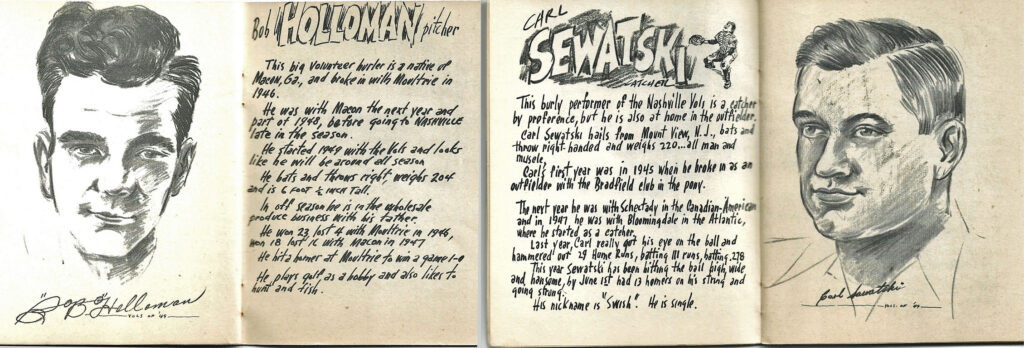
Second Nashville Booklet Printed in 1950
Sabbatini produced another sketchbook the next season on Nashville’s 1950 players but with abbreviated text for most of them. He included full bios for new manager Don Osborn, Fred Richards, Bob Ludwig, Bert Flammini, Eddie Fernandes, Tom Neill, Roy Peterson, James Atchley, Bill Emmerich, and John Liptak, and sketches of each one.
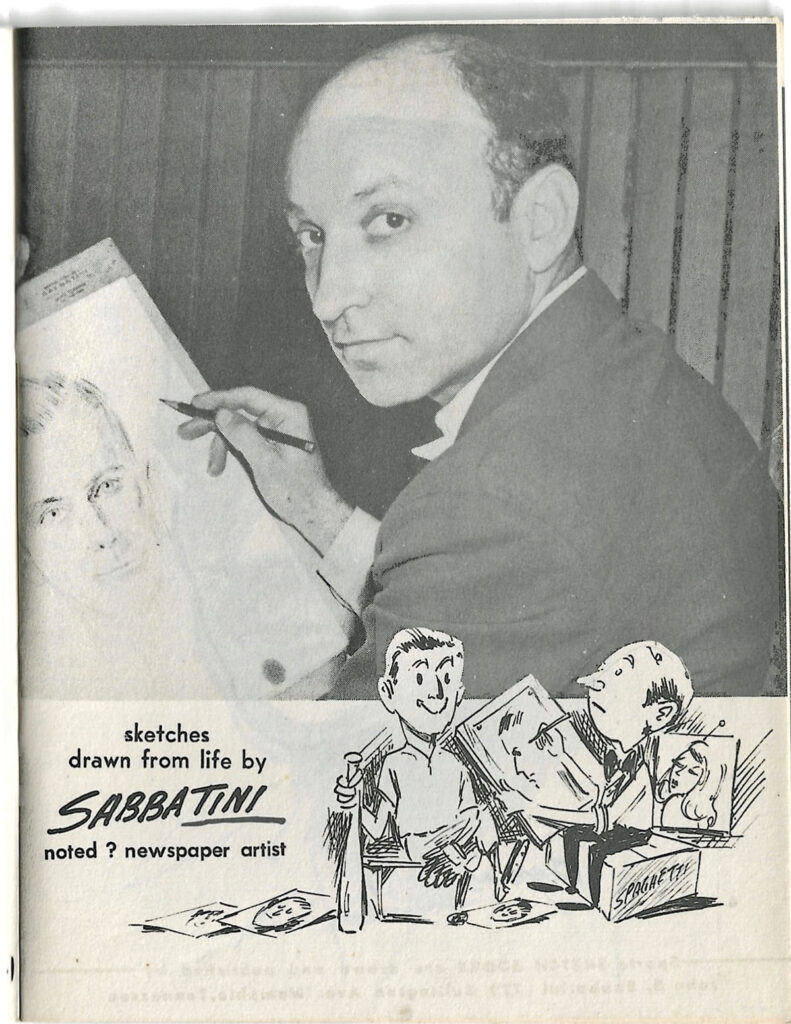
Condensed information for many players, Tony Jacobs, Bama Ray, Carl Sawatski, Harold Boguskie, Paul Mauldin, Pete Modica, Joe Damato, and Bob Schultz, is not printed with the sketch of each one but placed in unorganized sections. However, a photograph of Sabbitini allows the reader to view the artist himself. The 1950 booklet includes a Nashville team roster, season home schedule, advertisements, and photographs.
Artist and Advertising Agent
As a resident of Memphis, it stands to reason Sabbatini would print booklets for the Memphis Chicks but limited them to only a few years, according to Birmingham’s Clarence Watkins, a researcher and collector of Southern Association information and memorabilia.
“The 1947 Memphis booklet shows an Atlanta edition was available to order, and in 1949 there were first and mid-season editions,” Watkins says. “The 1950 Memohis sketchbook mentions there were baseball, football, and basketball books available, and the Chicks one for 1951 states it is the fifth edition.”
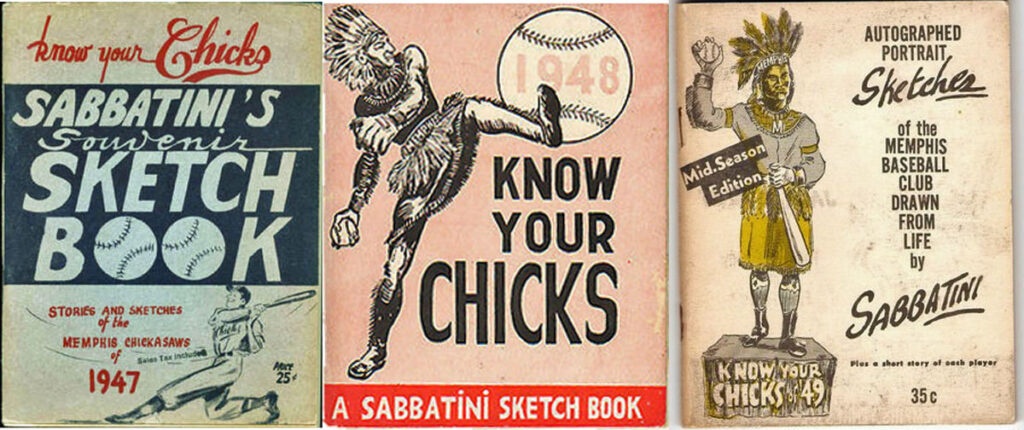
Born on March 6, 1903, Sabbatini was a graduate of Christian Brothers College where according to an article and photograph in The Commercial Appeal on July 24, 1961, he was a member of the 1922 Prep League football championship team. He worked for The Commercial Appeal art department from 1927 to 1930 before joining the O’Callaghan Advertising Agency for one year.
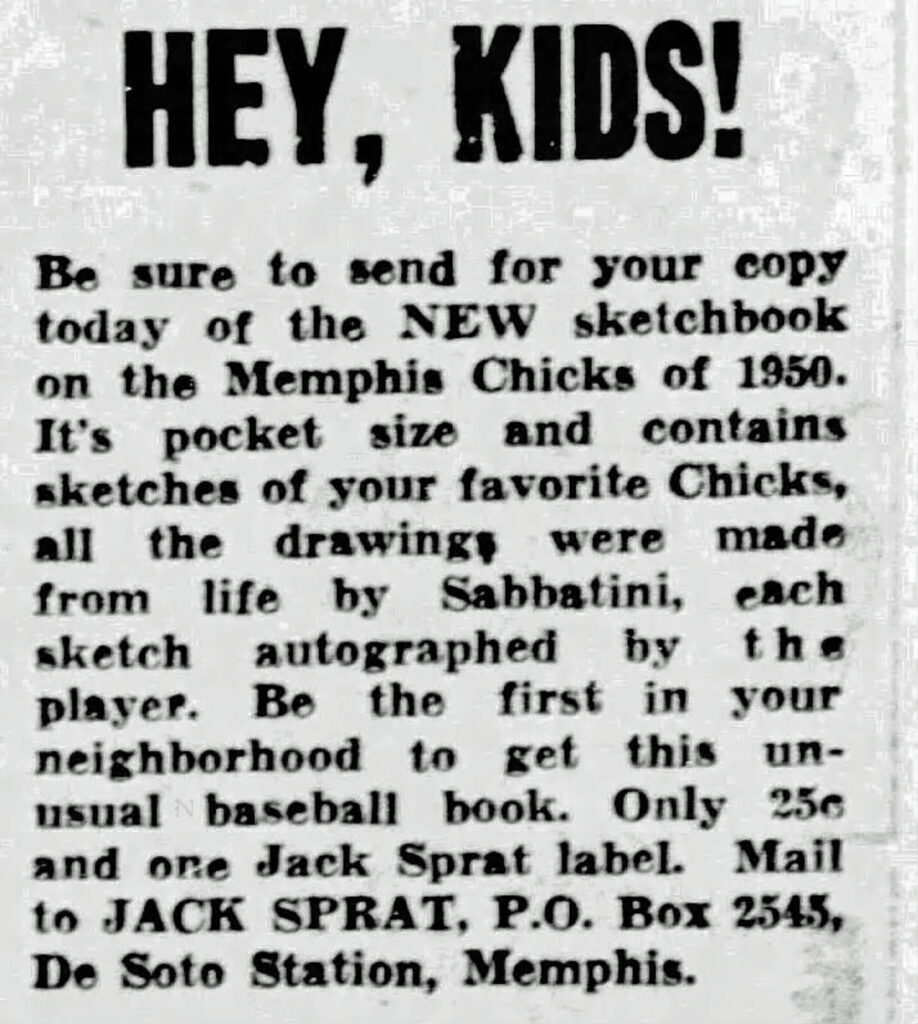
Sabbatini returned to the newspaper until 1933 before joining wholesale food distributor Malone & Hyde. He later served as an advertising agent for Liberty Cash Grocery, an establishment located at 613 South Highland in Memphis and owned by the Montesi family.
He did sketches from his downtown office studio and often traveled to cities near Memphis, drawing sketches for various events and celebrations. The Memphis Press-Scimitar reported on July 2, 1955, Sabbatini joined John B. Goodwin Realty Co. as a salesman in 1955 after taking a real estate course class at the University of Tennessee Extension School. He passed away on December 27, 1968, at 65, and was buried at Calvary Cemetery in Memphis.
Writers note: Thanks goes out to Clarence Watkins, Birmingham, Alabama, author of three books published by Arcadia Publishing: Baseball in Memphis (2012), Baseball in Birmingham (2010), and Baseball in Montgomery (2017), for his valuable knowledge and assistance in researching for this story.
Sources
1940 US Federal Census
Ancestry.com
Findagrave.com
Lauderdale, Vance, (2013, January 1). Well, I’m Stumped. Memphis Magazine (accessed on 10-19-2023 at https://memphismagazine.com/ask-vance/well-im-stumped/)
Memphis Press-Scimitar
Newspapers.com
Personal Collection of Sabbatini’s Nashville Sketchbooks
The Commercial Appeal
US City Directory, Memphis, Tennessee, 1935
Worthpoint.com
© 2023 by Skip Nipper. All Rights Reserved.
#sabbatini #sketchbooks #nashvillebaseball #memphisbaseball #nashvillevols #memphischicks



